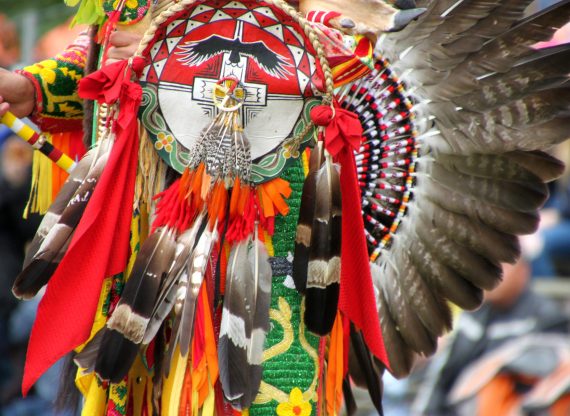First Nations mean business

Chief Ronnie Chickite of the We Wai Kai Nation on Vancouver Island says he is excited for a future with more Indigenous-led businesses. On March 23, a ground breaking ceremony took place near Campbell River at the site of a future Starbucks coffee store operated entirely by his First Nation community, a first-of-its-kind collaboration in Canada. The new Starbucks will incorporate Indigenous artwork in collaboration with local artists.
“[Businesses] are opening their doors to be in partnerships with First Nation communities, which is something that we haven’t seen a lot of in the past,” Chief Chickite is reported to have said. “It is through partnerships, like this one with Starbucks Canada, that will support our goal of self-reliance.”
This of course is just one small example of a trend that’s happening across the country. There is a constantly growing number of Indigenous-led businesses nowadays in every field of economic activity.
More and more First Nations people are fed up waiting for Ottawa to give them permission to develop their communities. They understand that sustainable prosperity and self-reliance will not happen thanks to more money transferred to them by politicians and bureaucrats, but rather by taking control of their own development and producing stuff.
They mean business – in both senses of the word. They are determined to get rid of the dependency and the paternalism.
And why should we be surprised? They are simply reverting to an entrepreneurial behaviour that was characteristic of North American Indigenous communities for millennia, before the Indian Act stunted it.
Anybody who had Canadian history courses at school will remember that one of the first things Europeans and Indigenous peoples did was to trade with one another. French Canadian coureurs des bois could not have travelled across the continent without the canoe and the knowledge of Indigenous allies. This is how the important fur trade that sustained the colonies was developed.
But trading networks existed on the continent long before the Europeans arrived. Chinook Jargon for example was a simplified trade language between the various communities of the Pacific Northwest region. Despite the absence of written records, there is ample archeological and anthropological evidence that business and trade were essential aspects of social life in North America at that time.
Although obviously not as advanced technologically as European societies, the pre- and early Contact Indigenous populations of North American were not stone age primitive tribes living in isolated communities, as some still mistakenly believe. They were complex societies at various stages of early economic and technological developments.
They had a wide range of property systems, including private ownership, and not just a communist-type of communal property as the myth goes, which is actually what the reserve system imposed by the Canadian and American governments is more akin to.
In a fascinating article published in 2010, three Western University researchers, Le Dressay, Lavallee and Reeves, did a historical survey of First Nation market culture in the territory that would later become Canada. They concluded that they possessed the basic market institutions that would have allowed them to continue to develop if their world had not been upended by the arrival of Europeans: specialization in production allowing for trade, commercial standards and dispute resolution mechanisms, mediums of exchange, individual property rights.
More importantly, they wrote that “as a result of recent legislation and emerging comparative advantages, there are contemporary opportunities for First Nations to restore their market cultures and create the conditions for First Nation economic growth.”
What is needed are indeed better laws, rules and regulations that favour business creation, entrepreneurship, capital accumulation, and economic development, which is actually happening, slowly but surely. Just last week also, new legislative amendments to the First Nations Fiscal Management Act (FNFMA) were introduced in Parliament. Under this Act, First Nations can exercise jurisdiction over property taxation and financial management, and gain access to capital. Since the adoption of the Act in 2005, 342 First Nations have chosen to participate.
According to Manny Jules, Chief Commissioner of the First Nations Tax Commission and one of Canada’s most eloquent voices in favour of Indigenous economic progress, “the FNFMA has been the most successful First Nation-led legislation in Canadian history”, and adopting these amendments is “a key step towards achieving practical economic reconciliation between First Nations and Canada.”
There is still much to do. But there is progress. If you have the chance, do something to promote reconciliation and encourage a First Nation business.
Michel Kelly-Gagnon is Founding President of the MEI and Special Advisor to Sage Roots Foundation, a charity aimed at ending on-reserve poverty through entrepreneurship and public policies conducive to wealth creation. The views reflected in this opinion piece are his own.

